The $2.6 million Mile of Music festival is free for attendees. Where does all the funding come from?
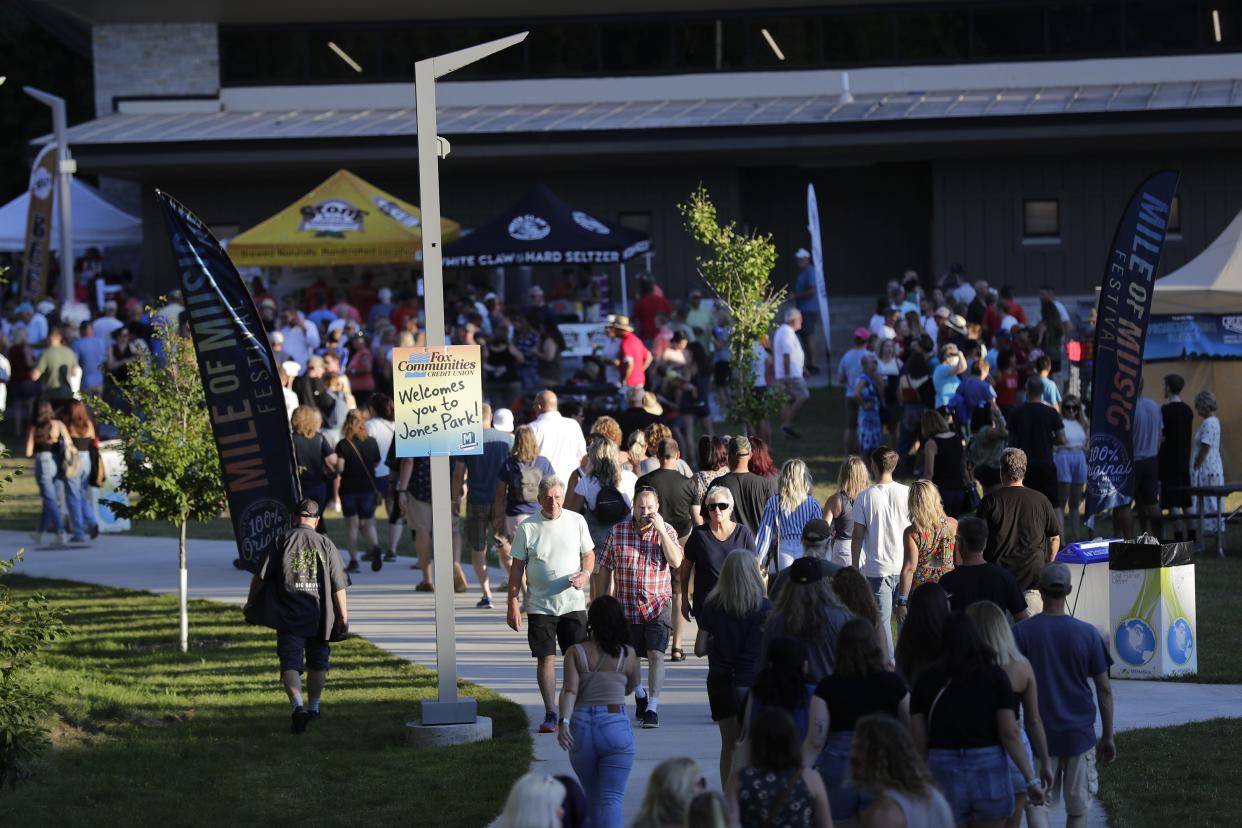
APPLETON – The city's four-day Mile of Music festival bills itself as a free way to catch original music from 200 artists at 40 venues.
This year's lineup includes local and international acts at various stages in their careers.
The festival draws a crowd because of its talent, uniqueness and, in part, because there is no cost to attend. But putting on the festival certainly is not 100% free.
The 2022 festival cost about $2.6 million to run the 700 music sets across 40 venues, the Post-Crescent reported in January. Dave Willems, executive producer of Mile of Music and founder of Willems Marketing & Events, breaks down what it truly takes to make this festival happen.
Where does funding for the festival come from?
That $2.6 million is roughly the festival's budget each year, but Willems said about one-third of that comes from a "long list" of in-kind sponsors, which offer services in exchange for sponsorship and are a "huge piece of what we do."
Creative Imprint creates all of Mile of Music's merch, but he said the company also provides a lot of in-kind and small sponsorships, such as providing T-shirts to volunteers.
"For 600 people to have volunteer shirts on would otherwise be a significant cost," he said.
Other in-kind sponsors include Core BTS, which does the festival's website and app, and Fast Signs, a local company that has designed banners and signs for the festival since its first year in 2013.
Since it's beginning, Willems said the festival's funding has been "a mosaic" that continues to evolve. Funders include community and marketing sponsors from companies, couples and individuals as well as donations.
The festival's "Sponsors and Supporters" webpage lists about 72 businesses, including the Post-Crescent.
Other organizations like the Fox Cities Performing Arts Center provide space, said its president and CEO Maria Van Laanen. The PAC is the festival headquarters, where volunteers check in and artists can enjoy the lounge. It also is a venue for music education events during the festival and provides storage for equipment.
"We're subsidizing Mile of Music's use of the venue, and we think that's an important partnership," she said. "It's not revenue-boosting for the performing arts center, but the festival in total brings so much impact to the community."
Mile of Music also brings in revenue during the festival from merchandise sold at four locations and online as well as from concessions sold near the outdoor stages in Jones Park, Houdini Plaza and the Lawrence Lawn.
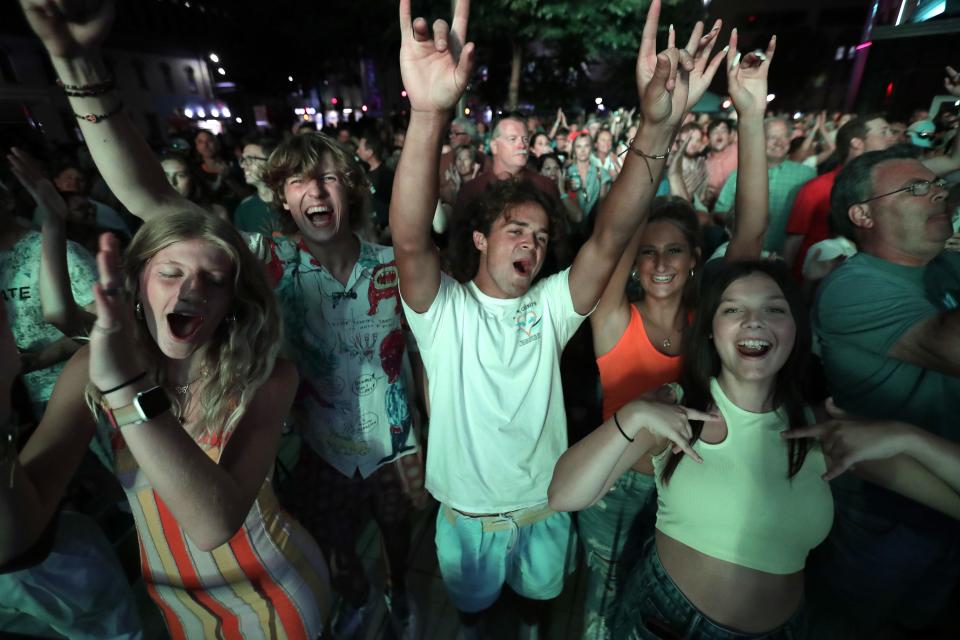
Willems said his company, Willems Marketing and Events, has helped fund the festival whenever there is a shortfall.
Who staffs the festival?
Between city workers, police, security, volunteers and sponsors, it takes a lot of people to make Mile of Music happen.
"How many pairs of hands do help make it happen? That number is over 3,000, maybe even 4,000," Willems said. "People from the hospitality workers to the city workers to the Mile team to all the Music-Makers that help to fund it year-round and the sponsors who fund it during the festival."
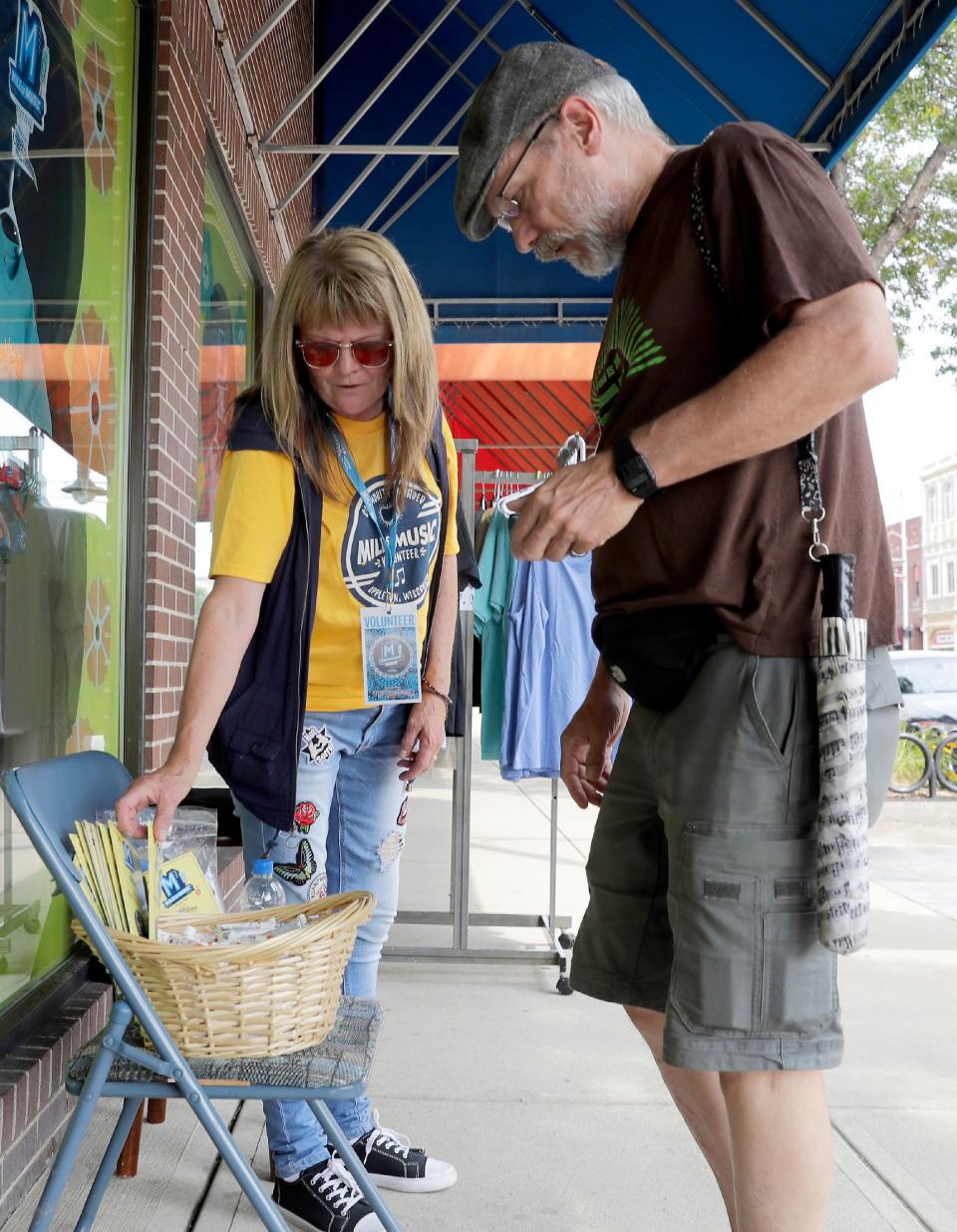
Businesses that serve as a live music venue during Mile of Music have to schedule more staff during the four-day long weekend.
Much of the actual festival is volunteer driven, including those manning concessions stands at the outdoor stages. Willems said those interested can sign up individuals or groups for three- to five-hour shifts at mileofmusic.com. Shifts are available for everything from beverage sales and serving to volunteer check-in, monitoring the main stage perimeter, manning merchandise sales and delivering meals to sound tech.
How can people help raise funds for the festival?
With the establishment of the 501(c)3 nonprofit Appleton Community Music Inc., in 2021, Willems said he's hopeful future festivals will be better supported.
The nonprofit's website lists its "shared goals" with Mile of Music as keeping the festival free to attend, ensuring its future sustainability, and creating an "outstanding experience for artists through fair compensation" and funding the festival's Artists Hospitality and Care Program.
ACM may have formed in 2021 but was more of a background organization, Willems said. It wasn't widely advertised, but that will change.
"This is the first year we feel we've had time to prepare," Willems said. "People will hear about Appleton Community Music while at the festival and have the option if they want to support."
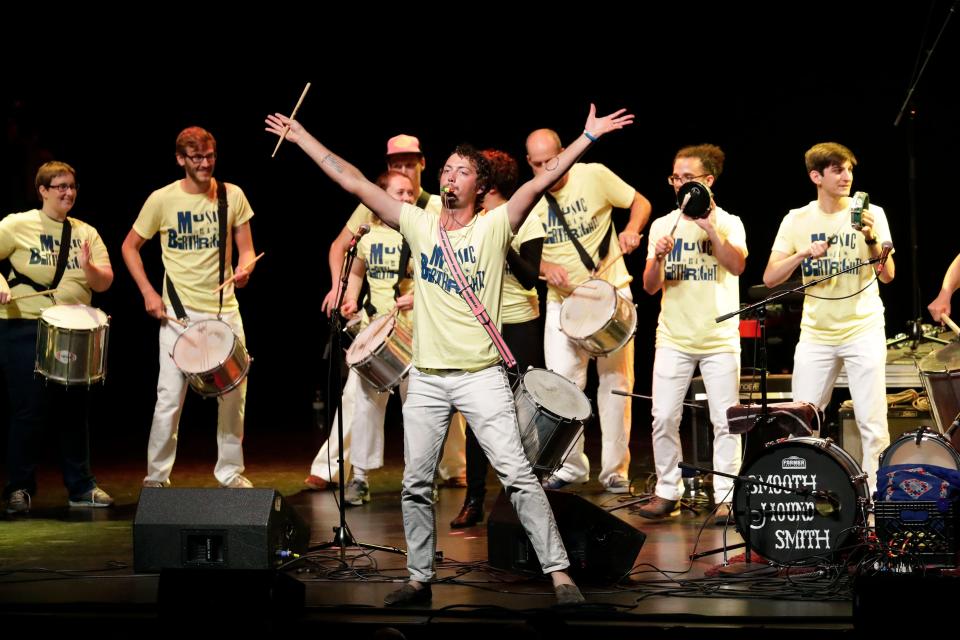
Mile of Music also offers Music-Maker Subscriptions, which for $150 offer perks during the festival and for various year-round Appleton-area events. Some perks include discounted tickets for Mile of Music Presents shows and events, meet-and-greets and welcome sessions with artists, merch discounts and more. Those who become Music-Makers this year will also receive special 10-year anniversary perks.
What is the cost for businesses to host musicians?
Mark Mader, director of sales and entertainment for Appleton Beer Factory, said the cost for a business to participate as a live music venue at Mile is "very reasonable." He said the festival charges 10% of the venue's weekend revenue.
"Honestly, when you’re doing live music on the regular, your expectations of what you’re putting in are much more than 10%," he said. "If you bring promoters in to do music for you, you're paying ... quite a bit more than what you're paying when Mile comes around."
And for larger venues like Appleton Beer Factory that are already hosting live music year-round, the benefits far outweigh the costs.
"Most venues are gonna make a month’s worth of business in about four days," he said. "There’s an obvious monetary opportunity."
Though they pay higher costs for more food and beverages, they also see higher sales.
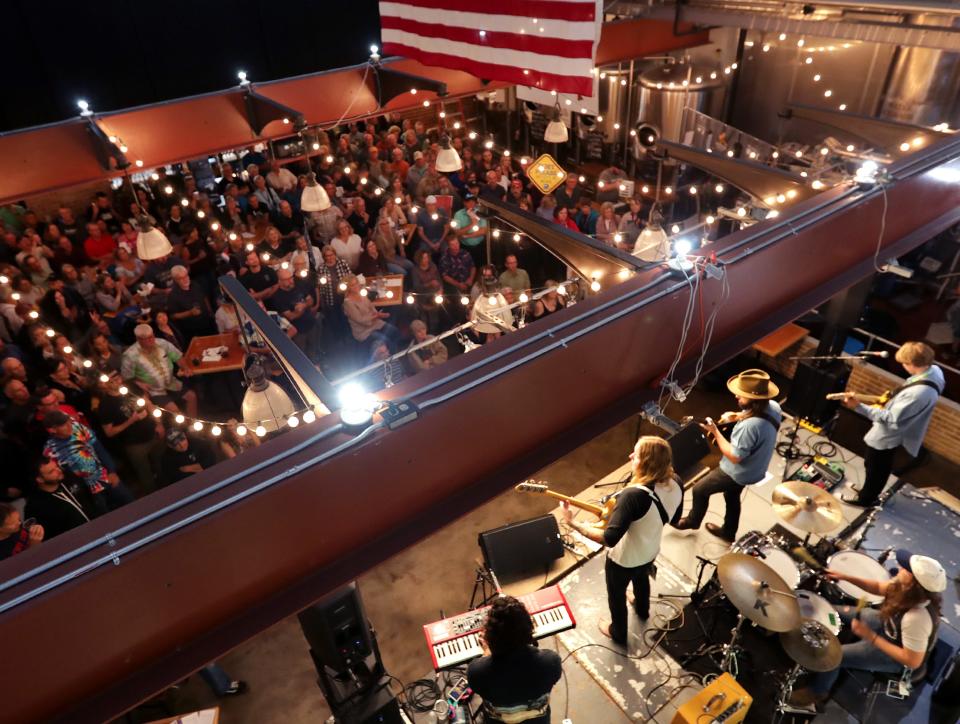
Mader said the brewpub plans to schedule extra staff for longer shifts and has to hire a bouncer, which it doesn't usually have. He said they also try to stagger shifts so employees can go enjoy the festival, too.
Appleton Beer Factory also was founded with help from partner organizations, which provide volunteer staff to run a second "side bar" in the room with the stage.
The restaurant has been a Mile of Music venue since 2014.
For other venues, though, the costs — actual and mental — outweigh the benefits. Deja Vu Martini Lounge has been involved with the festival since its beginning, but owner Kelly Koroll told Willems at the end of the 2022 festival that the venue would not return for the festival in 2023.
Koroll declined to share actual costs for the bar but said the biggest cost factor was the amount of time that went into planning for the festival and the overtime for extra staff. He said he personally would work 18- to 19-hour days during the festival.
"Yes, there were a lot of sales. Percentage wise, in those four days, we do an astronomical amount of sales," Koroll said. "A lot of it is when you factor in that amount of time, is that worth the reward?"
What do artists get paid to perform?
Mile of Music artists are paid a "performance total," based on how many sets they play, where they are traveling from and other factors, Willems said.
The festival covers lodging and food for all artists. He added that "almost all" of the artists stay at the Hilton Appleton Paper Valley.
Starting with Mile 3 in 2015, the festival offered its artists an Artist Care program, which provides everything from dental care to hearing and skin cancer screenings as well as massage and physical therapy and more to all participating artists.
Christopher Gold, an Appleton-based musician who has performed in every Mile festival, said the way the festival takes care of musicians is unlike any other festival or show he's experienced.
"Some places give you a place to play, some places give you a place to stay, but no one provides you with a trip to the dentist," he said.
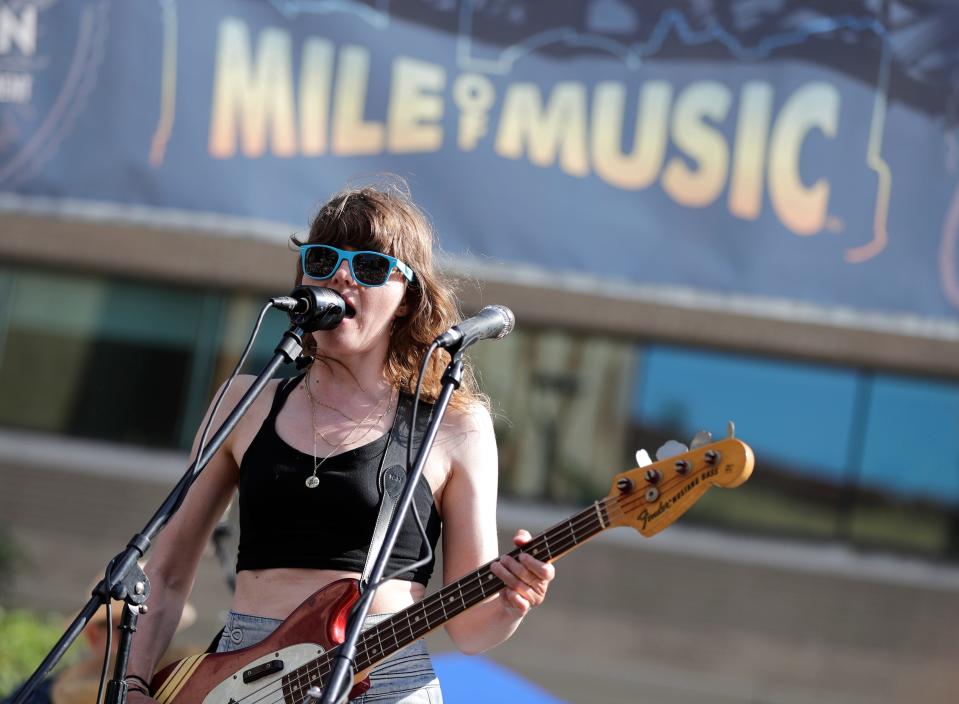
The festival also provides an artist lounge at the Fox Cities Performing Arts Center. That provides beverages and a full lunch and dinner buffet to artists in partnership with Stone Arch Brewpub. The local eatery has been providing this in some form since the first festival.
The only major expense artists have to cover is transportation to and from the festival.
Will Mile of Music ever charge a ticket fee to attendees?
Willems said the question of charging an admission fee comes up in discussions every year when talking about revenue streams.
"It would change the whole dynamic of the festival significantly," he said. "It would change our discussion with artists and their agents ... There's an awful lot to that decision."
For now, he said the goal is to keep the festival free to attend. That aligns with his vision for Mile of Music and ACM's mission.
And as long as it makes financial sense, he would like them to continue to do so.
Katy Macek is a regional features and business editor for the Appleton Post-Crescent. Contact her at kmacek@gannett.com or 920-426-6658. Follow her on Twitter @KatherineMacek.
This article originally appeared on Appleton Post-Crescent: Appleton's Mile of Music thrives on donors, fans and no ticket fees

